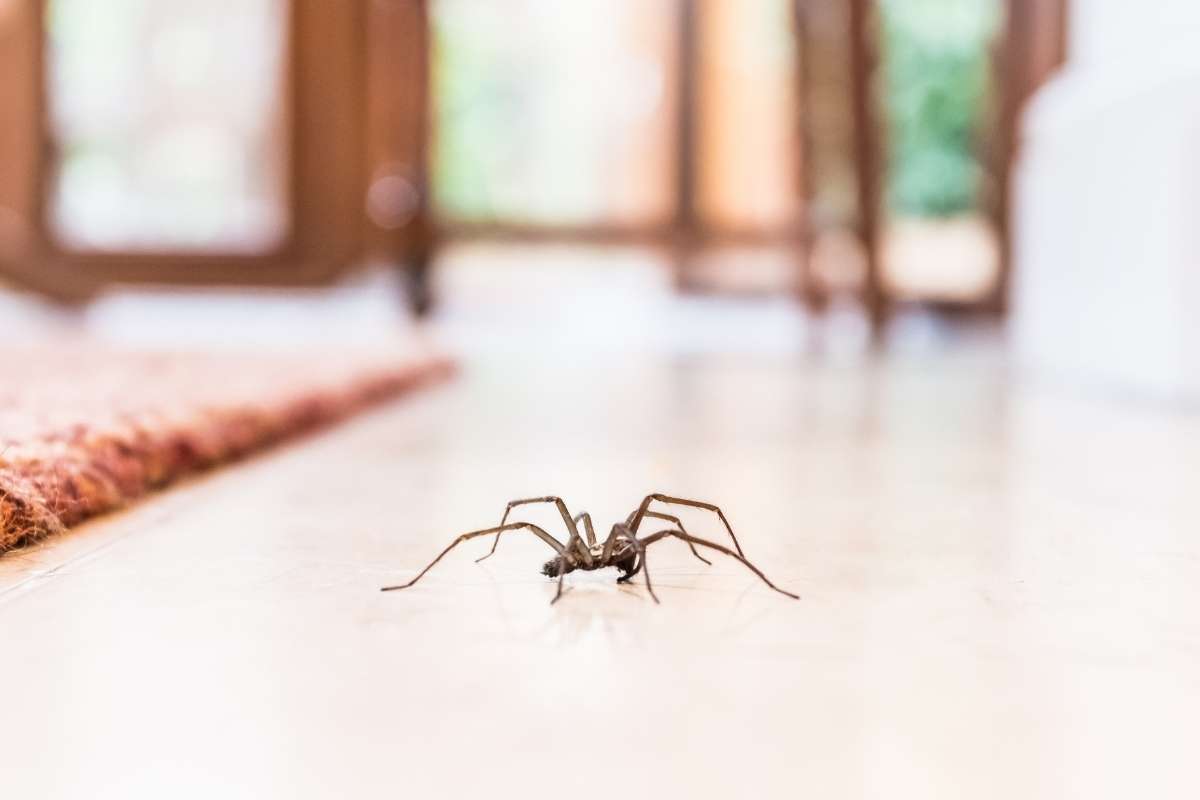Why Are There So Many Spiders in Autumn?
Spiders in Autumn appear so often that people call the end of summer ‘spider season’. Around the same time that spiderweb decorations begin adorning walls for Halloween, real strands of spider silk trace across nooks and crannies too. For some, the influx of spiders in Autumn becomes a bit of a nuisance, but for others, it’s absolutely terrifying. In either case, understanding spider behaviour helps you deal with the issue, and go about your spider season relatively web-free.

What Are All These Spiders?
You’re only likely to bump into a few of the 650 spider species living in Britain. Tiny money spiders make up around a half of these species, and only ten types live in residential homes. You’re most likely to run into the aptly-named house spider, a species that makes up the vast majority of spiders in British residences. While you see house spiders more frequently in Autumn, they reside in our homes all year round. The average person shares their home with around 50 spiders, and some larger or older buildings house hundreds.
Why Do I See So Many Spiders in Autumn?
While spiders live in the house throughout the year, they appear most often in Autumn for two key reasons. One, most obviously, is the same reason we spend more time indoors when summer ends: the changing temperature. House spiders descend from Mediterranean and North African ancestors, so prefer cosy indoor heat to the British Autumns and Winters. While spiders do live indoors no matter the season, you may see other spiders driven in by the cold, or existing spiders moving around more often to find the warmest spots and cosiest corners.
However, it’s a common misconception to attribute spiders in Autumn to temperature alone. September and October also coincide with spider mating season. During this time, female spiders move out into the open to attract mates, while males hunt around searching for their winter partners. Roving males account for the vast majority of eight-legged creatures spotted during spider season, making up around 80% of sightings. While this romantic quest may endear some to the spiders’ cause, the arachnophobes among us find the hairy legs and eight eyes hard to see past.
Should I be Concerned About Spider Bites or Other Hazards?
Of the hundreds of spider species in the UK, only 14 are capable of biting humans. For the most part, their fairly impotent venom cannot do you much harm. Even the most venomous, most notorious, and most dangerous spider in Britain, the False Widow spider, cannot kill you. While its venom causes nausea, pain, and discomfort, the symptoms never last longer than a day.
Most spiders couldn’t bite you if they wanted to, which they don’t. However, many people fear spiders whether they’re dangerous or not. Spiders are pretty creepy creatures. Their jagged bodies lurk in dark corners, and their jolting runs frighten the life out of people. Giant house spiders speed can speed along at half a meter per second, enough to get anyone with a hint of arachnophobia out of their chairs.
Spiders also suffer from bad press and disinformation campaigns. They don’t dangle into your mouth when you sleep, and they don’t crawl in your ears and lay eggs. Understanding the fear of spiders, and the good that spiders in Autumn do around the house, should shape your plans to deal with them.
How to Deal With Spiders in Autumn
If staying calm when you spot a spider simply isn’t an option, there are other things you can do to keep your home creepy-crawly free. House spiders find acidic flavours very deterring, so some homeowners rub citrus or vinegar-based solutions around doors, windows, and skirting boards to keep spiders at bay. However, these sticky liquids sometimes just attract other bugs instead.
Spiders love dark, damp, warm places. Homes with excessive autumn leaves and log piles in their gardens and porches often suffer from the worst spider problems. Removing debris, along with the spiders’ habitat and food sources, should curb the home invasions. The best way to avoid swarms of spiders in Autumn can be as simple as dusting your rooms and keeping them well-lit.
Sealing your home’s entry points also proves crucial in the fight against pests. The fact that spiders can get into your home at all could hint at larger pest problems.
Pest control: Calling in the Experts
Spider-related problems range from silly to severe. Huge, persistent nests of spiders might need more intervention than a simple cup-and-paper trick. Sensible homeowners often call pest control experts to deal with infestations. These professionals also offer great advice on how to pest-proof your home. If spiders can get inside your home, other creatures may be in the building too. Temperatures and mating season forcing spiders into the open may signal that your home is compromised and in dire need of pest control and prevention measures.
